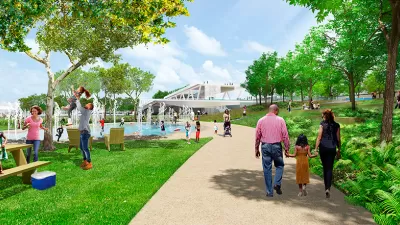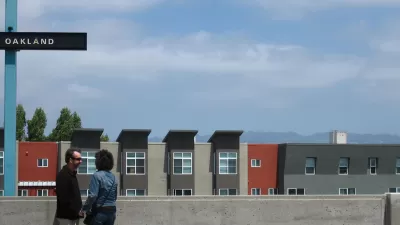Data from Washington D.C. shows how the demographics of eastern neighborhoods have shifted heavily toward childless singles over the past decade.

In a little more than a decade, Washington D.C. neighborhoods have seen some startling demographic changes. Analysts from the city's Office of Revenue Analysis used address data from local income taxes to extrapolate where different kinds of families lived in the years 2002 and 2013.
The result: a marked increase in childless singles living in eastern neighborhoods, and no real change in western ones. Fewer households east of Rock Creek Park were singles with dependents in 2013 than in 2002. Another noteworthy trend was a slight shift of married couples with no dependents toward more central zip codes. The distribution of married couples with dependents varied.
The article includes maps documenting the shift for various household types and an interactive tool showing neighborhood composition by zip code in both years.
FULL STORY: How D.C.’s neighborhoods have changed since 2002

Alabama: Trump Terminates Settlements for Black Communities Harmed By Raw Sewage
Trump deemed the landmark civil rights agreement “illegal DEI and environmental justice policy.”

Study: Maui’s Plan to Convert Vacation Rentals to Long-Term Housing Could Cause Nearly $1 Billion Economic Loss
The plan would reduce visitor accommodation by 25% resulting in 1,900 jobs lost.

Planetizen Federal Action Tracker
A weekly monitor of how Trump’s orders and actions are impacting planners and planning in America.

Wind Energy on the Rise Despite Federal Policy Reversal
The Trump administration is revoking federal support for renewable energy, but demand for new projects continues unabated.

Passengers Flock to Caltrain After Electrification
The new electric trains are running faster and more reliably, leading to strong ridership growth on the Bay Area rail system.

Texas Churches Rally Behind ‘Yes in God’s Back Yard’ Legislation
Religious leaders want the state to reduce zoning regulations to streamline leasing church-owned land to housing developers.
Urban Design for Planners 1: Software Tools
This six-course series explores essential urban design concepts using open source software and equips planners with the tools they need to participate fully in the urban design process.
Planning for Universal Design
Learn the tools for implementing Universal Design in planning regulations.
Caltrans
Smith Gee Studio
Institute for Housing and Urban Development Studies (IHS)
City of Grandview
Harvard GSD Executive Education
Toledo-Lucas County Plan Commissions
Salt Lake City
NYU Wagner Graduate School of Public Service





























